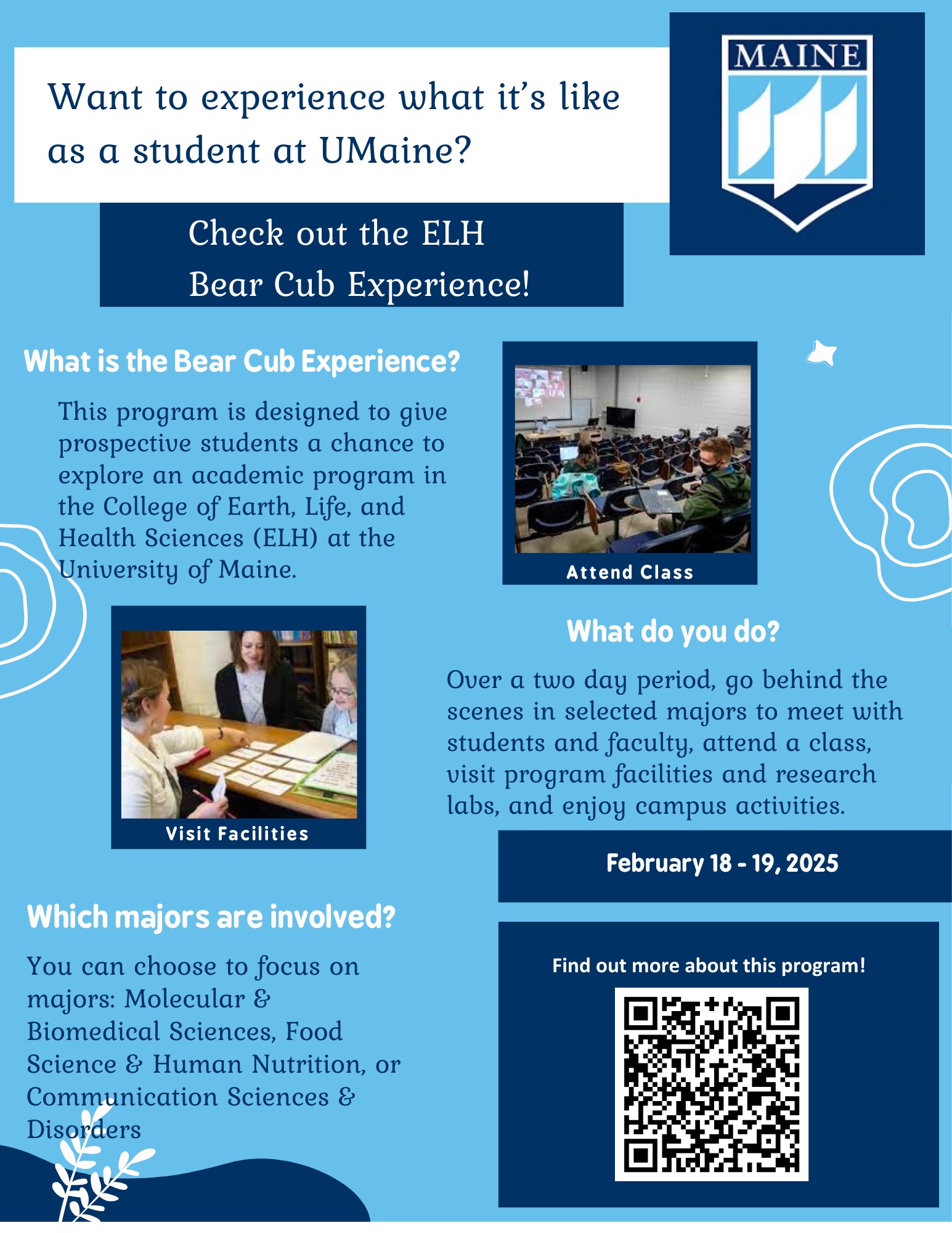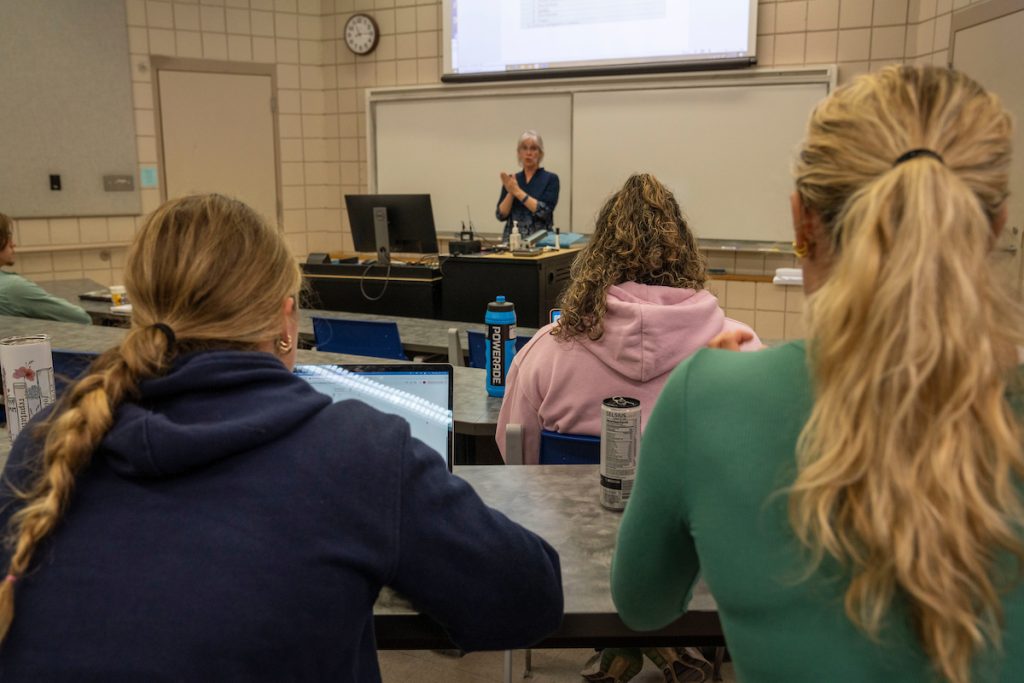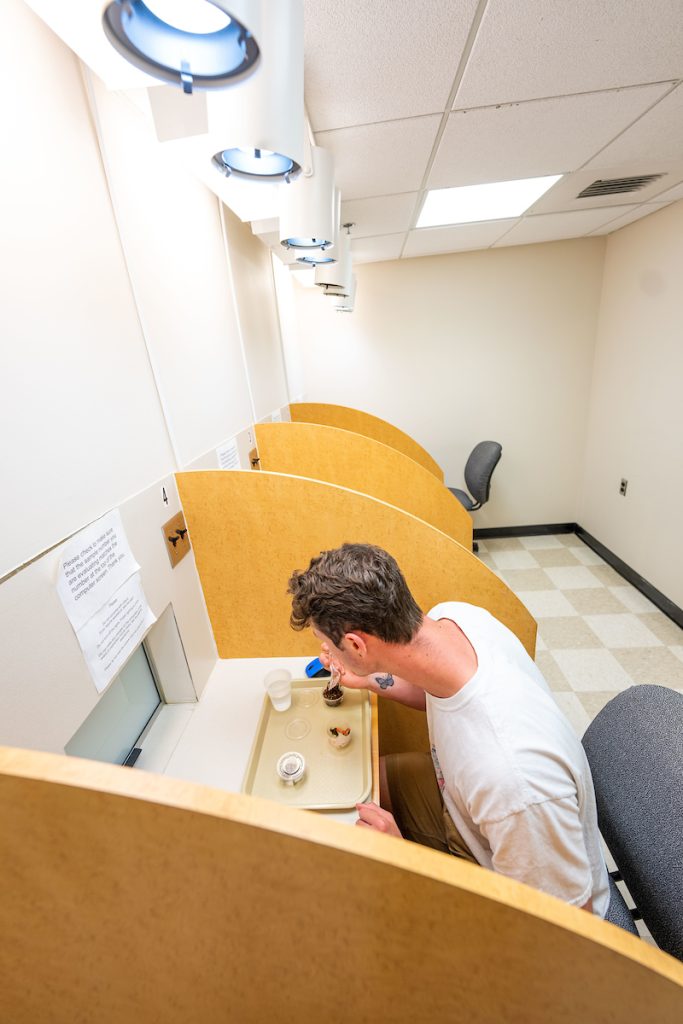B.S. Degree in Food Science and Human Nutrition
The B.S. degree in Food Science and Human Nutrition has three concentrations and prepares students for a variety of different careers. The Food Science concentration focuses on food product development (the creation of new food products or food ingredients), food safety (understanding and preventing foodborne illness), sensory evaluation (taste testing foods for their quality and likeability), and food analysis (measuring food composition and quality). There are many employment opportunities in food companies and government agencies. The concentration in Human Nutrition and Dietetics (also known as the Didactic Program in Nutrition and Dietetics – DPD) provides undergraduate preparation for students who wish to become registered dietitians and prepares students to pursue a broad range of careers in nutrition or to continue with graduate studies. The Food Management concentration provides a unique combination of food and business to prepare students for a wide variety of career opportunities, including employment in restaurants, hospitals, and school foodservice departments, as well as airline catering. Companies that produce foods, food ingredients, or processing equipment seek students who specialize in food management.
Students in the FSN degree program have access to a number of facilities for academic and research purposes, including space and equipment in the Chemical Food Safety Laboratory, the Sensory Evaluation Center, the Mary Lynch Nutrition Laboratory, and the Dr. Matthew Highlands Food Pilot Plant.
For more information contact the Program Coordinator: Eileen Molloy (207.581.3121, eileen.molloy@maine.edu)


FSN Student Spotlight!
From: Upstate NY
Concentration: Human Nutrition and Dietetics
Anticipated graduation: May 2025
Why Nutrition? I chose to study nutrition because helping people make positive
lifestyle changes became a passion of mine after a few of my family members faced
health complications. Being a nutrition student has provided me with the knowledge to
make informed decisions that optimize my health and well-being!
Future Goals: After I graduate, I plan to complete my Master’s degree and Dietetic
Internship and then go on to become a Registered Dietitian! I am interested in working
in Community Nutrition. Sharing my knowledge of nutrition to educate families and
communities make positive lifestyle changes would be so rewarding.








